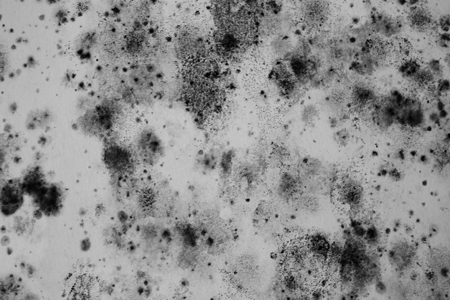
by Eric Brown | Dec 16, 2016 | 37 Symptoms Associated With Mold Illness, Air Conditioning, Attic Mold, Basement Mold, Beware Of Mold When Buying A Home, Bleach and Mold, Can Black Mold Poison You?, Can Mold Kill?, Christmas Tree Mold, Chronic Fatigue Syndrome (CFS), Chronic Inflammatory Response Syndrome (CIRS), Commercial Mold Remediation, Commercial Mold Removal, Crawl Space Vapor Barrier, Crawlspace Mold, Dead Mold Spores, Flood Clean Up, Front Loading Washing Machine Mold, Health, How Toxic Is Mold?, Indoor Air Quality, Killing Mold, Mold and Asthma, Mold and Celebrities, Mold and Chronic Fatigue Syndrome, Mold and Depression, Mold and Famous People, Mold and Genes, Mold and Infants, Mold and Multiple Sclerosis, Mold and Parkinson's Disease, Mold and Pregnant Women, Mold and Sids, Mold and Sinusitis, Mold Facts, Mold In Apartment, Mold In Schools, Mold In The Bible, Mold Information, Mold Inspection, Mold Remediation, Mold Removal, Mold Removal Cost, Mold Risk During Renovation, Mold Sensitized Customer Testimonial, Mold Sensitized Success Story, Questions and Answers, Sewer Backup, Sippy Cup Mold, Stachybotrys Black Mold, Top 15 Mold Prevention Tips, Water Damage Restoration
The Ultimate Mold Education Resource (50 Articles)

The Ultimate Mold Education Resource (50 Articles)
The goal of Mold B Gone is to educate our customers about mold. We strongly believe that an educated and informed consumer can make better decisions when they have concerns about mold.
Included in this article are 50 links to articles that will help you learn about mold.
Please bookmark this page because we will update it with new articles as they are researched and published.
If you have questions about mold removal, crawl space mold removal and encapsulation, other services we offer, and/or our 1 year up to 25 year guarantee, call us, 678-697-6267, or send us an e-mail. We look forward to serving you. 🙂
Mold Facts and Information (13 Articles)

Mold Facts and Information (13 Articles)
-
Priests were the equivalent of today’s mold inspectors. This article lists the three passages cited in Leviticus. Learn more!
-
This article explains why your crawl space is humid and what you can do about it.
-
This article explains what you should and should not do if you find mold in your home, church, school, day care center, store, office building, restaurant, or hotel!
-
Several high profile celebrities have been impacted by mold. Listed in this article are 12 prominent celebrities that have battled mold.
-
This article explains what causes bad indoor air, health signs, and what you can do about it.
-
Mold Fact 1: The Key Ingredient Mold Needs To Thrive Is Moisture. There are 9 more mold facts explained in this article. What do you think they are?
-
Top 4 Reasons Mold Grows In Your Attic! The purpose of this article is to explain why mold grows in your attic and prevention tips.
-
Top 3 Reasons Your Crawlspace Has High Humidity. This article explains why your crawlspace is humid, why this leads to mold and how you can fix the problem!
-
Steps Residents Can Take If They Have Mold In Their Apartment! This article explains what you can do if you find mold in your apartment. Learn more!
-
This article lists and explains the top 10 reasons you need to be aware of mold!
-
The purpose of this article is to explain how and why your crawl space could be contaminating your indoor air.
-
This article provides you with information to help you determine if you have a mold problem and explains what you should and should not do if you do find mold.
-
The purpose of this article is to answer the most common questions asked about crawl spaces and explain why your crawl space needs a vapor barrier. Learn more!
Black Mold (2 Articles)
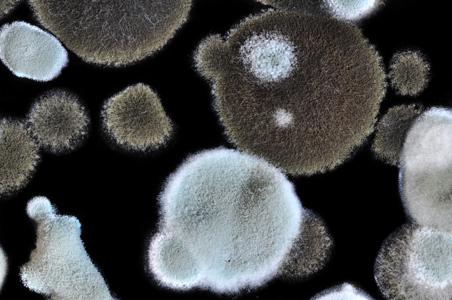
Black Mold (2 Articles)
-
Recently a news article featured a woman who believes that she was poisoned by toxic black stachybotrys mold. This article explores this topic further!
-
Stachybotrys is considered the king of molds because exposure to this toxic black mold causes 15 serious health conditions. Learn more!
Mold and Health (17 Articles)

Mold and Health (17 Articles)
-
The purpose of this article is to help you determine if mold and the indoor air quality of your child’s school is making them sick and what you can do. Learn more!
-
What is the link between mold and chronic fatigue syndrome? Scientific research suggests a relationship between mycotoxins and CFS. Learn more!
-
Wondering why mold is a health concern? This article lists the top 15 questions asked about specific health problems caused by mold. Learn more!
-
Wondering if you are sensitive to mold? This article explains how to determine if you are mold sensitized, seeking treatment, and the next two steps to health!
-
This article explains why mold can be toxic, listing 10 specific health conditions. Learn more!
-
Potential Health Complications Mold Exposure Has On Pregnant Women and Infants! Questions answered about SIDS, asthma, miscarriage, and pulmonary hemorrhage.
-
This article article explains why mold grows on sippy cups, why it could make your child sick, and how you should properly clean the sippy cup!
-
Mold Remediation Improves Health! This article explains why, citing an interview with Jack and Helen Graham, a Mold Sensitized Success Story!
-
Could Some People Diagnosed With Multiple Sclerosis Actually Be Suffering From Mold Sickness? This article explains how and why. Learn more!
-
One in Three people get sick from their Christmas tree. This article explains why and what you can do to feel better. Learn more.
-
25% of people are genetically pre-disposed to mold illness. This article explains why, citing scientific research and 37 symptoms associated with CIRS.
-
This article explains why many suffering from CIRS are diagnosed with depression caused by mold. Both scientific and anectodal data are cited. Learn more!
-
Does Mold Cause Parkinson’s Disease? The purpose of this article is to explain why and how mold could be a possible cause of Parkinson’s Disease.
-
Top 3 Reasons Mold Sickness Is A Hidden Epidemic! You could be sick from mold and not even know it. This article explains why mold is a hidden epidemic!
-
37 million Americans suffer from sinusitis. Cause? This article lists the top 10 stats and facts citing MAYO clinic research that believes mold is the cause!
-
According to the CDC, rates of asthma among children in Georgia is 3% above the national average. Is mold a factor? This article cites stats and research!
-
Mold B Gone helps homeowners and businesses test mold, remove mold and recover from mold.
Water Damage and Mold (4 Articles)
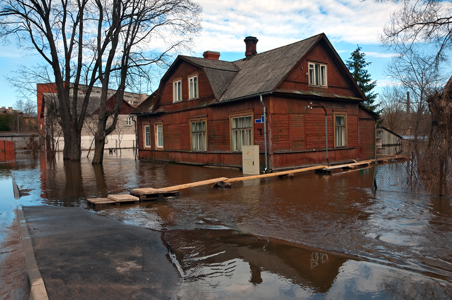
Water Damage and Mold (4 Articles)
-
Concerned about sewer backups? This article explains what causes sewers to backup and how you can prevent this from happening. Learn more!
-
Flood and water damage not only disrupts your life but can also be hazardous to your health! This article explains the top 3 hazards and prevention measures!
-
A flooded home or business is always a stressful situation. This blog provides you with the 3 steps required to reduce flood damage and most importantly, mold!
-
Water damage restoration restores a property to pre-loss condition after a flood. Check out the top 3 facts. Hint: Mold is not the only concern.
Mold Inspection and Prevention (8 Articles)

Mold Inspection and Prevention (8 Articles)
-
Mold growth can be prevented. This article list the top 15 mold prevention tips, to help you live in a mold free home.
-
If you have a front loading machine that has mold problems, this article explains how to prevent it.
-
This article lists the top 3 reasons why you should submit an offer to purchase, subject to a home AND mold inspection!
-
Home improvement is an American tradition. But, did you know that 6 out of 10 homes could have mold? Renovating can cause serious problems. Learn more!
-
Basements are susceptible to mold growth. The first clue of mold is a musty smell. This article provides you with 10 tips to prevent basement mold. Learn more!
-
If you or someone in your family suffers more frequently from colds or flus and you are not sure why, the cause could be poor indoor air quality. Learn more!
-
Do you feel sick when your air conditioner is on? Your AC could be a source of mold contamination. This article explains why. Learn more!
-
Wonder what happens during a mold inspection? This article answers all your questions, listing the top 4 actions taken by reputable inspectors.
Mold Removal (6 Articles)
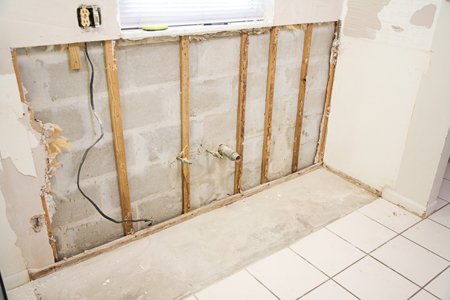
Mold Removal (6 Articles)
-
Have a mold concern, wondering what it will cost to remove? This article provides you with a detailed explanation of how mold removal cost is determined!
-
Mold sprays, bleach, biocides, and fungicides are an ineffective “short cut” to mold removal. Killing mold is not the answer! This article explains why.
-
Mold Removal Is Referred To As Mold Remediation Because Professionals Follow These 8 Steps. This article explains the steps and why you need to hire a pro!
-
Mold B Gone helps homeowners and businesses test mold, remove mold and recover from mold.
-
This article features a testimonial from a mold sensitized individual who was helped by mold removal.
-
This article lists the eight steps in mold removal. Learn more!

by Eric Brown | Dec 2, 2016 | Can Black Mold Poison You?, Can Mold Kill?, Christmas Tree Mold, Chronic Inflammatory Response Syndrome (CIRS), Health, Indoor Air Quality, Killing Mold, Mold and Asthma, Mold and Sinusitis, Mold Facts, Mold Information, Mold Remediation, Mold Removal, Toxic Mold
What Is Christmas Tree Syndrome?

What Is Christmas Tree Syndrome?
Last year, a newspaper article was published to explain the potential health concerns caused by your Christmas tree: “How CHRISTMAS TREES can cause hay fever hell: Pollen grains, dust and mould can trigger sneezing, coughing and a runny nose”
The article dubbed the illness, Christmas Tree Syndrome, because 1 in 3 (approximately 35 percent) people get sick, suffering from hay fever like symptoms, soon after the Christmas tree is set up in the home.
This article explains what causes Christmas Tree Syndrome and provides recommendations on how you can minimize the potential health issues caused by this indoor air quality issue.
What Are The Health Symptoms of Christmas Tree Syndrome?

What Are The Health Symptoms of Christmas Tree Syndrome?
Typical signs that your tree is making you ill include the following:
- Asthma attacks, usually triggered by cladosporium mold
- Rhinitis
- Runny nose
- Sinus pain
- Sneezing
- Wheezing
- Coughing
- Cold like symptoms, that subside when away from the home or the room with the tree in it.
Mold Is The Cause Of Christmas Tree Syndrome!
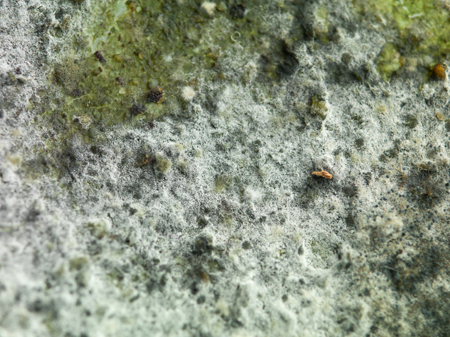
Mold Is The Cause Of Christmas Tree Syndrome!
Prior to the studies documented below, it was thought that tree pollen or even weed killer applied to Christmas trees made people ill.
However, as the studies below conclude, the core cause of Christmas Tree Syndrome is mold, which releases spores and causes allergic reactions:
“Researchers at St. Vincent’s Medical Center in Bridgeport, Connecticut, found that a room containing a fresh Christmas tree for two weeks had mold levels that were five times the normal level. Other studies have shown that levels this high can cause allergic rhinitis and asthma symptoms, says the study’s coauthor, allergist and immunologist Philip Hemmers.”
In another study Dr. John Santilli, compared the level of mold spores in the home before and after the tree was placed in the home. The normal level of mold spores is 800 per cubic meter, but within 14 days of the Christmas tree being in the home, the level of mold spores increased to 5,000 spores per cubic meter.
Another scientific study by allergy specialist, Dr. Lawrence Kurlandsky at Upstate Medical University in New York set out to determine why respiratory illnesses peak around Christmas. The study found 53 different kinds of mold, including, aspergillus, penicillium, cladosporium and alternaria, which can trigger asthma attacks, sneezing and a runny nose. One of the key conclusions made by this study was 70 percent of the molds found triggered allergies and asthma.
What Can I Do To Minimize Mold Exposure From My Christmas Tree?

What Can I Do To Minimize Mold Exposure From My Christmas Tree?
Mold spores are found naturally on Christmas trees, which will flourish once they are in a centrally heated home.
With this in mind, if you can manage Christmas with an artificial tree, that is the best solution. Please note, artificial trees can accumulate a layer of dust and even mold if not stored properly. Be sure to store your artificial tree in a dry area and preferably in plastic tubs to minimize exposure to moisture and dust.
However, if you must use a live Christmas tree, here are some tips to minimize the health impact:
- Thoroughly hose down your tree and let it dry before bringing it into the house. If you bought your tree at a nursery, ask if they have tree washing services.
- Clean all ornaments and lights before putting on the tree; they can harbor dust and molds. Store all decorations in plastic containers that can be easily wiped down since cardboard can potentially attract dust and mold.
- Minimize exposure. If you’re sensitive to molds, keep a live Christmas tree no more than four to seven days.
- Run an air purifier in the same room as the Christmas tree. This may help alleviate symptoms.
- Allergy medication may also help alleviate some symptoms as well.
- Since mold spores may accumulate the longer your tree is in the house, consider getting rid of it first thing on the 26th.
Happy holidays from your friends at Mold B Gone. If you have questions, we are here to help! If you think you have mold, call us, 678-697-6267 or contact us via e-mail for further assistance.

by Eric Brown | Nov 18, 2016 | 37 Symptoms Associated With Mold Illness, Can Mold Kill?, Chronic Fatigue Syndrome (CFS), Chronic Inflammatory Response Syndrome (CIRS), Health, How Toxic Is Mold?, Indoor Air Quality, Mold and Asthma, Mold and Chronic Fatigue Syndrome, Mold and Depression, Mold and Genes, Mold and Multiple Sclerosis, Mold and Parkinson's Disease, Mold and Pregnant Women, Mold and Sinusitis, Mold Facts, Mold Information, Mold Remediation, Mold Removal, Questions and Answers
What Impact Do Genes Have On Mold Illness?

What Impact Do Genes Have On Mold Illness?
Mold B Gone specializes in helping mold sensitized individuals.
One of the questions we are often asked is why do some people get sick from mold and other’s do not?
One of the biggest challenges faced by people sick from mold is the fact that doctors, friends, and other family members dismiss their symptoms simply because they do not get sick when exposed to mold.
Many victims of mold sickness are labelled as hypochondriacs and are accused of not being sick at all.
This is tragic because many people that get sick have no control over their sickness because their bodies have a genetic pre-disposition to mold illness.
The other major problem with mold illness is the fact that there are so many symptoms, 37, associated with it, meaning it is difficult for physicians to pinpoint the cause.
This article explains how your genes impact mold illness and what you can do if you suspect that you suffer from Chronic Inflammatory Response Syndrome (CIRS).
Legal Challenges Faced By Mold Sensitized Individuals

Legal Challenges Faced By Mold Sensitized Individuals
Sickness from mold has been around for decades.
Victims of mold have tried to plea their cases in the courts seeking compensation for the health damages caused by poorly maintained homes and buildings that had water damage and mold.
Unfortunately, many of the plaintiffs lost their battle because the courts did not believe that mold actually makes people sick.
Despite this, data from thousands of contractors working with occupants of water-damaged buildings documented the health challenges that many mold sensitized individuals faced.
According to Erik Johnson, a mold expert and survivor, it was not until the 1990s, that the World Health Organization, acknowledged that “Sick Building Syndrome” could be caused by toxic mold.
Moving forward, finally, it seems that there is greater recognition that mold is in fact the cause of sickness for many. In 2015, the MOLDY documentary featured health professionals and people who have suffered mental and physical health issues after living in moldy homes. This was a ground breaking documentary because it brought the issue of mold and sickness to a much broader audience, thereby creating significant awareness of this issue.
In a presentation at the PLR Expo in Toronto, Canada, in 2015, CEO of Wonder Makers Environmental, Michael Pinto presented “12 Future Trends In The Restoration Industry“.
One of the most notable trends he cites is a “A Tighter Connection Between Medicine and Environment“.
Pinto cites new diagnosing techniques to identify the illness, Chronic Inflammatory Response Syndrome (CIRS) (detailed below), which legitimizes the tie between Water Damaged Buildings (WDB) and sickness. Research has identified a genetic component to this condition (explained below), a screening test (VCS), and most importantly, a treatment regimen.
Other trends Pinto believes demonstrate the important ties between medicine and the environment include the Environmental Relative Moldiness Index (ERMI) which is a scientific test that analyzes dust samples for 36 mold species. This test provides base information to identify CIRS because 26 of the mold species are considered to be water damage indicators.
This test is important because one sample can be analyzed to identify the extent of water damage in the building that could make someone susceptible to CIRS sick. Importantly, this test will provide an ERMI score, ie. a HERTSMI-2 score that can be given to physicians and will help them assess whether a building will make their patient sick.
Because of the growing medical awareness and the fact that there are now medical tests and drugs to diagnose and treat mold illness, Pinto believes that one of the other consequences of this acknowledgement will be a “More Active Justice System” where plaintiffs will now be able to get compensation because they now have science to back up their claims.
25% Of People Have A Genetic Predisposition to Mold Illness

25% Of People Have A Genetic Predisposition to Mold Illness
The most interesting aspect of the research on the effect that Sick Building Syndrome has on patients pertains to genetics. One of the biggest problems with mold sickness is that it impacts everyone differently. Some may experience minor allergies, and other health conditions like asthma and chronic sinusitis, while other mold sensitized patients may suffer severe illnesses.
One physician documented the health symptoms of 227 patients that lived in water damaged buildings during a three year period. What this doctor found was that 98% of his patients had one of the gene types where their immune systems were not able to effectively deal with contaminants from water damaged buildings.
As stated by Pinto:
“In layman’s terms, two different genes have been isolated, which keep some people’s immune systems from functioning properly when they have been exposed to contaminants from water-damaged buildings. Instead of properly identifying and eliminating the foreign invader, those body defense mechanisms increase the problem. When viewed with a basic understanding of genetic distributions, this research made it clear that up to a quarter of the population (25%) is at increased risk from exposure to water-damaged buildings.“
This research is very significant because it demonstrates that up to 25% of the population has a genetic pre-disposition that makes them more susceptible to mold illness and the condition known as Chronic Inflammatory Response Syndrome (CIRS).
Because of this research, the scientific community and legal system is now taking much greater notice because diagnostic tests, lab tests and treatment tools are being developed to help these patients.
37 Health Conditions Associated With CIRS!

37 Health Conditions Associated With CIRS!
Listed below are the 37 symptoms associated with CIRS.
- Fatigue
- Weakness
- Aches
- Muscle Cramps
- Unusual Pain
- Ice Pick Pain
- Headache
- Light Sensitivity
- Red Eyes
- Blurred Vision
- Tearing
- Sinus Problems
- Cough
- Shortness of Breath
- Abdominal Pain
- Diarrhea
- Joint Pain
- Morning Stiffness
- Memory Issues
- Focus/Concentration Issues
- Word Recollection Issues
- Decreased Learning of New Knowledge
- Confusion
- Disorientation
- Skin Sensitivity
- Mood Swings
- Appetite Swings
- Sweats (especially night sweats)
- Temperature Regulation or Dysregulation Problems
- Excessive Thirst
- Increased Urination
- Static Shocks
- Numbness
- Tingling
- Vertigo
- Metallic Taste
- Tremors
According to Dr. Ritchie Shoemaker, CIRS is:
“an accute and chronic, systemic inflammatory response syndrome acquired following exposure to the interior environment of a water-damaged building with resident toxigenic organisms, including, but not limited to fungi, bacteria, actinomycetes and mycobacteria as well as inflammagens such as endotoxins, beta glucans, hemolysins, proteinases, mannans, c-type lectins and possibly spirocyclic drimanes, plus volatile ogranic compounds.“
For 75% of the population, when exposed to biotoxins caused by mold, the individuals immune system responds by binding with the invading poison that allows its cells to filter the biotoxins through the liver, kidneys, and other organs. In contrast, 25% of the population that have the genetic susceptibility to mold illness get sick because their bodies immune system does not bind to the biotoxin, meaning it is not eliminated and therefore continues to circulate, causing the many symptoms, documented below.
The “C” in CIRS refers to the term “Chronic” because individuals that are exposed to poisons from mold are unable to eliminate the toxins from their body, resulting in on-going and escalating sickness, particularly if the person is continually exposed to mold. This is the primary reason that the first priority of medical practitioners treating mold sensitized patients is to begin the detox process which also must coincide with movement away from the building that is constantly exposing the person to the toxins.
The “I” in CIRS refers to the term “Inflammatory” because the constant exposure to the toxins creates a cycle of sickness, meaning the individual’s immune system is constantly trying to fight the toxins, leading to inflammation.
The “R” in CIRS refers to “Response” because the human body is designed to respond to invading toxins. In the case of patients suffering from mold sickness, the immune system is constantly trying to fight the toxins causing a stress on the complete immune system of the individual, which in turn leads to other health conditions.
As stated by Pinto, the “S” in CIRS refers to “Syndrome” because:
“The symptoms are a result of many factors, including external exposures and internal responses. The contaminants from water-damaged buildings should trigger the activation of an immune response, but some people’s genetic structure does not allow the proper recognition of the biotoxin. Since this combination of circumstances inhibits the clearance of the poison from the body, these harmful substances continue to circulate and create continual damage. With such individuals there is no linear dose/response relationship, meaning that even trivial exposures can create severe problems.“
Is CIRS Life Threatening?

Is CIRS Life Threatening?
The major problem that individuals with CIRS face is their bodies immune systems become severely compromised and weakened from the vicious cycle of invading poison, immune response, and inflammation.
The end result is many of their bodies systems are damaged leading to a wide range of health conditions, some life threatening.
For this reason, many mold survivors have reported that they have abandoned the primary residence that initially made them sick; instead, seeking shelter in trailer parks, and very dry areas, with desert like conditions where moisture is limited. These drastic measures were taken by these individuals because their bodies have become so sensitized to mold that even minor exposure triggers severe reactions.
Fortunately, the continued research on mold sickness is creating hope because treatments have developed that help individuals detox and eliminate the poisons, followed by rebuilding the immune system so that it regains strength.
Do You Suspect You Have A Mold Illness?

Do You Suspect You Have A Mold Illness?
The core problem with CIRS is the fact that there are so many symptoms associated with the condition.
Are you constantly seeking medical attention?
Have you been feeling sick for an extended period of time?
If you think you may be sick because of mold, review the mold sensitized interviews to gather more information.
The next step is to verify that you actually have a bio-toxin illness caused by mold, meaning you should get your home tested for mold.
Then seek out an environmental physician who can properly diagnose, determine if you have a genetic pre-disposition to mold illness, and most importantly begin treatment so your body can properly detox.
If you are diagnosed with mold illness, your physician may request that you leave your home for awhile during the detox process.
During this period, we advise that you get all the mold removed from your home, your contents cleaned, and a thorough cleaning of your HVAC system to prevent the spread of mold spores after the remediation is complete.
Got Mold Questions?
Questions? Need help? Mold B Gone looks forward to serving you, with the added benefit that we understand the needs of mold sensitized individuals. Call 678-697-6267 or send us an e-mail!

by Eric Brown | Jul 22, 2016 | Bleach and Mold, Can Black Mold Poison You?, Can Mold Kill?, Chronic Fatigue Syndrome (CFS), Chronic Inflammatory Response Syndrome (CIRS), Dead Mold Spores, Health, How Toxic Is Mold?, Indoor Air Quality, Killing Mold, Mold and Asthma, Mold and Chronic Fatigue Syndrome, Mold and Depression, Mold and Infants, Mold and Multiple Sclerosis, Mold and Parkinson's Disease, Mold and Pregnant Women, Mold and Sids, Mold and Sinusitis, Mold Facts, Mold Information, Mold Remediation, Mold Removal, Mold Sensitized Customer Testimonial, Mold Sensitized Success Story, Questions and Answers, Stachybotrys Black Mold, Toxic Mold
Top Fifteen Frequently Asked Questions About Mold and Health

Top Fifteen Frequently Asked Questions About Mold and Health
Mold B Gone has been helping residents in the Atlanta metropolitan area and surrounding Georgia states with mold removal since 2009.
During this period we have encountered many questions about mold and the impact it can have on health.
Listed below are the top 15 questions we have encountered with links to articles that provide detailed answers.
#1 Why is Stachybotrys Mold A Health Concern?
You often hear about black mold in the media. Why is it such a big deal? Can black mold actually make you sick? This article explains why!
#2 Why Do Some People Get Sick From Mold And Others Do Not?
The challenge mold poses is that it impacts everyone differently. This article explains why!
#3 What Is The Link Between Mold and Chronic Fatigue Syndrome?
Considering the similarity of symptoms between those suffering from ME/CFS and those suffering from CIRS, it is likely that many individuals diagnosed with ME/CFS may have been exposed to mycotoxins produced by mold growth. Learn more!
#4 Is Mold Sickness A Hidden Epidemic?
Since so many health professionals are not aware of the health problems mold causes, many mold advocates believe that it is a hidden epidemic. In short, you could be sick from mold and not even know it. Learn more!
#5 Does Mold Cause Sinus Infections?
Chronic sinusitis costs the health care system more than 8 billion dollars each year. The cause is most likely mold, meaning most of the treatments prescribed are not effective. Learn more!
#6 Could Some People Diagnosed With Multiple Sclerosis Actually Be Suffering From Mold Sickness?
Dr. Rick Sponaugle of the Florida Detox & Wellness Institute strongly believes that environmental factors, such as mold, could be a cause of MS because mold toxins destroy the myelin sheath on brain neurons, causing the classic white spots seen in MS. Learn more!
#7 How Do I Know If Mold Is Making Me Sick?
Most people do not even know they are sick because of mold and or suffering from Chronic Inflammatory Response Syndrome (CIRS). Learn more!
#8 Are Dead Mold Spores Harmful?
There is a lot of bad information on the internet. One of the most prevalent myths is that you can kill mold. This article explains why this is not a good idea and why it can impact your health. Learn more!
#9 Why Does Mold Cause Depression?
Doctor Ackerley believes there is a strong correlation between mold and brain health, particularly depression and suicide. Learn more!
#10 Does Mold Cause Parkinson’s Disease?
Recent research suggests that that biologic compounds such as mold have the potential to damage dopamine and cause Parkinson’s symptoms. Learn more!
#11 Why Is Mold A Health Concern?
Mold is nature’s recycler meaning it is designed to break down dead, organic material. Now, imagine, what happens when you have mold growing in your home. It is breaking down the material it is feeding on. Since we spend up to 90 percent of our time indoors this creates a situation ripe for health issues. Learn more!
#12 Does Mold Remediation Improve Health?
Yes, it does, this article cites a case study.
#13 Does Mold Cause Asthma?
Four studies demonstrate a strong link between mold and asthma. Learn more!
#14 Does Mold Affect Pregnant Women and Infants?
This is a difficult topic to research, but there is some evidence that mold could have an impact. Learn more!
#15 Can Mold Poison Me?
There is evidence that toxins and poisons released by growing mold can harm one’s immune system and cause severe sickness. Learn more!
Got Mold and Health Questions?
If you are concerned about mold and think that it may be impacting your health, please do not hesitate to contact us because we specialize in helping mold sensitized individuals.
Our team of professionals looks forward to serving you.
Peace of mind is just a phone call away, 678-697-6267!

by Eric Brown | Jun 30, 2016 | Chronic Inflammatory Response Syndrome (CIRS), Health, How Toxic Is Mold?, Indoor Air Quality, Mold Facts, Mold Sensitized Customer Testimonial
Mold Remediation Helps Mold Sensitized Woman Move Back In Home!

Mold Remediation Helps Mold Sensitized Woman Move Back In Home!
Mold B Gone has three main goals.
- To create awareness of mold, which we accomplish through this website and our blog.
- To service the needs of mold sensitized individuals.
- To offer our customers throughout Atlanta and other surrounding areas in Georgia and other states peace of mind with our service guarantee. We guarantee our work up to 25 years, depending on the mold prevention system: Mold Zap (1 years) or Mold Shield (25 years), that our customers choose. Both products are manufactured by American Mold Products.
Mold B Gone Specializes In Helping Mold Sensitized Customers!
One of the specialties of Mold B Gone is servicing mold sensitized individuals.
Our specialized training from Wonder Makers Environmental, enables us to effectively help our customers because we address the immediate mold concerns in a home, the spore deposition throughout the home and also the HVAC system.
We are experts in working with individuals that have been sickened from living in Water Damaged Buildings (WDB) and understand that this can cause Chronic Inflammatory Response Syndrome (CIRS).
Since we understand the health consequences caused by WDB, we empathize with our customers and take special care and precautions to ensure that the indoor environment is safe for our mold sensitized customers.
Mold Sensitized Testimonial
Mold B Gone has received several testimonials from our customers, including an interview with a mold sensitized customer whose health dramatically improved once their home was properly cleaned.
The testimonial below was sent to us by Gail Z, a customer that we worked with in Alabama, about 3 hours from our head office in Atlanta, Georgia.
Gail was referred to us by Wonder Makers Environmental because she is mold sensitized and needed to work with a contractor that understands how to effectively remediate her home and properly clean up all the potential spore deposition.
Mold B Gone took on this project, removed the mold, addressed the spore deposition of all the home’s contents, and also advised her on the best method to clean up the HVAC system.
Today, Gail is back in her home, and this is what she had to say about our services:
Mold B Gone has been a blessing in big measure with their innovation and hard work in remediation.
Specifically Richard Baker, the Manager, has excellent leadership skills and has trained a very efficient and knowledgeable team of young men who did a superb job when they came to remediate my home in Alabama. He also is a very good communicator.
Mold B Gone did a large scale remediation in my house in spring of 2016 and traveled here to do it as well. Their “can do” attitude was very encouraging at EVERY interaction.
When problems arose, they were quick responders with a great attitude. In spite of being very busy and in great demand, their responsiveness and knowledge of the topic of mold remediation makes them stand out greatly. Service is an area that seems to lack greatly today.
In a field where the remediation industry does not seem to have caught up with new findings, discovery and research on mold, and its remediation, Johnny Wells, the owner of Mold B Gone has not only stayed on top of it but also has innovated in a manner that is consistent with a healthy understanding of the extent of care that needs to be exercised in remediation.
Mold B Gone has a patent and additional certification with higher standards of remediation for mold-ill and sensitized individuals that makes them stand out among their peers.
Mold B Gone not only has my respect but great commendation for their skill, their teamwork, their staying on top cutting edge technologies, and providing me with excellent and critical service in mold remediation.
Got Mold Questions?
If you have concerns about mold or the impact it is having on your health, please call 678-697-6267, or send us an e-mail. We look forward to serving you! 🙂

by Eric Brown | Jun 10, 2016 | Air Conditioning, Chronic Inflammatory Response Syndrome (CIRS), Dead Mold Spores, Health, Indoor Air Quality, Mold Facts, Mold Information, Mold Inspection, Mold Remediation, Mold Removal, Questions and Answers, Toxic Mold
Is Your Air Conditioner Making You Sick?
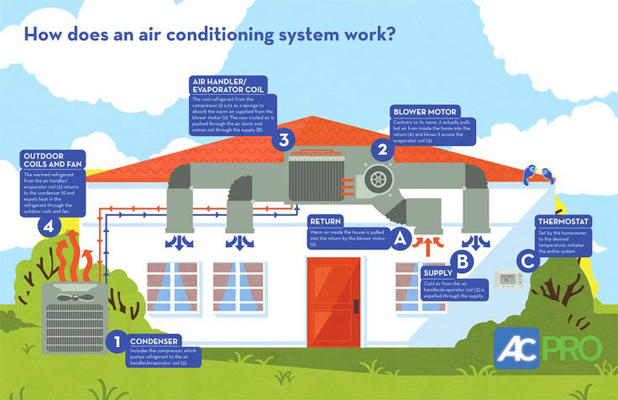
Is Your Air Conditioner Making You Sick?
One of the core causes of mold is high humidity levels. For this reason, your air conditioner is effective at reducing humidity levels and maintaining healthy levels of 30% to 50%. Unfortunately, your air conditioner can also be a source of mold if it is not properly maintained. The purpose of this article is to explain how your air conditioner could be a source of mold contamination and what you can do to address this problem.
The HVAC System Is Your Home’s Lungs
HVAC is an abbreviation for Heating, Ventilation, and Air Conditioning. The purpose of the HVAC system is to provide healthy indoor air quality by removing moisture, odors, smoke, heat, dust, airborne bacteria, and carbon dioxide, and replace it with clean air.
Ventilation is the most important component of your HVAC system because it’s main purpose is to circulate the air within the home and ideally is constantly introducing outside air into the system. The duct work in the HVAC system enables it to circulate the air throughout the whole home. Proper maintenance of your HVAC system is essential to ensuring that your indoor air quality is optimal.
Failure to replace filters is the number one error that home owners make. Filters need to be replaced consistently because they prevent pollen, pesticides, and other pollutants from entering the home. Once pollutants, dust, and other debris get into the duct work, mold can begin to grow because it now has a food source. Mold will only begin to grow if there is moisture. Once mold spores enter the air conditioning system, alternating high and low humidity conditions will help grow, spread, and distribute the spores throughout the house.
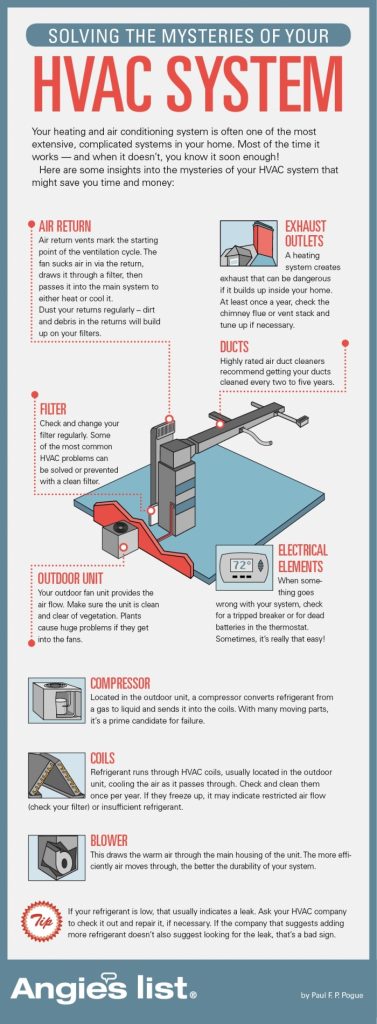
The HVAC System Is Your Home’s Lungs
Illnesses Caused By Air Conditioning Mold
Health signs that you could have mold in your AC unit include the following:
- Frequent colds
- Stomach pains
- Ear infections
- Frequent headaches
- Allergic reactions
- Asthma
- Coughing
- Sneezing
- Wheezing
- Itchy skin
- Sore nasal passages
- Irritated throat
- Watery eyes/dry eyes
- Hypersensitivity
- Skin care problems
Many of these symptoms are also associated with over-exposure to air conditioning which causes mucus membranes to dry out, causing colds, upper respiratory infections, dry skin, nose bleeds, and flu-like symptoms including fatigue, headaches, dizziness, and breathing difficulties.
Another potential problem caused by over-exposure to air conditioning is heat intolerance which causes discomfort when you go outside. Symptoms of heat intolerance include exhaustion, dizziness, headaches, and heat stroke. Prevent over-exposure by using a thermostat that regulates the indoor temperature, meaning the AC unit turns off when the ideal temperature is reached and turns on when the temperature goes above the ideal setting.
How Do I Verify That I Have Air Conditioning Mold?
If you are experiencing the health symptoms above and suspect that your AC unit or duct work is contaminated with mold, here are some clues to determine if you do have mold.
1. Check your vents and look for any visible mold or a musty smell in the room.
2. Take a short vacation and record your health symptoms. If you feel better when you are out of your home, then likely you have air quality concerns in your home which could be caused by mold.
3. Hire a professional mold inspector to do a complete survey of the home to find the source of contamination and determine if the home requires remediation. Also, be sure to check your crawlspace for suspect mold.
If no suspect mold is found or major moisture concerns that could be causing the mold, then a comparative air quality test can measure the relative spore count inside and outside. If the spore count is much higher inside than outside, then this could indicate that you have mold spores circulating throughout your home and you should get your AC unit and ducts checked for mold.
Removing Air Conditioning Mold
If you have mold in your AC unit, then it should be professionally cleaned. When you hire the service company, ensure that they take the following actions:
- Clean the blower unit.
- Use a certified and non-toxic chemical cleaner.
- Use a chemical that has anti-fungi and anti-bacterial properties.
- Ensure that the technician does not just clean the unit with a vacuum and brush because this simply agitates the bacteria and viruses breeding there.
We also recommend that the ducts are professionally cleaned in accordance with NADCA standards to ensure that your whole HVAC system is functioning efficiently and to prevent further spread of mold spores.
Professionals should be hired because it can be difficult to access all the parts of the air conditioning ductwork and they have the experience and training to do this properly. Further, professionals have air whips or air skippers that drive dust, dirt, mold, and other debris toward collection devices fitted with HEPA (high-efficiency particulate air) filters.
Preventing Air Conditioning Mold
Mold can be prevented in your air conditioner and HVAC system. Once you have the system professionally serviced and cleaned, these guidelines will help prevent future problems
1. Always maintain indoor humidity levels between 30% and 50% by getting a humidistat installed and set at the ideal level.
2. Follow manufacturer’s recommendations and clean or replace your unit’s air filter because these are designed to prevent the spread of bacteria and viruses. Failure to properly clean and replace filters will allow pollutants to build up and get caught in the filter and disperse into your indoor air.
3. Service your HVAC system every year.
4. Turn off your system and open the windows during cooler periods to bring in more fresh air. Adequate ventilation is essential to reducing indoor contaminants.
5. Install an air cleaner on your central heating and air conditioner unit to ensure a constant stream of clean air.
Consistent use of your AC is important because it reduces humidity levels which is moisture that mold needs to thrive. However, like any household appliance, you need to properly service and maintain your AC unit to ensure that it is operating efficiently and does not become a source of indoor contamination. Preventative maintenance is the key.
Got Air Conditioning Mold Questions?
We are here to help. Call, (470) 545-4467, or contact us via e-mail.
Air Conditioning Maintenance Tips Infographic

Air Conditioning Maintenance Tips




























